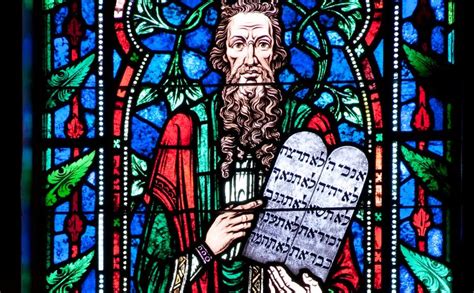The story of Moses is one of the most enduring and influential tales in human history, spanning across cultures and millennia. While the details of his life and exploits are well-known, one aspect of his story has long fascinated scholars and enthusiasts alike: the language he spoke. In this article, we will delve into the fascinating world of ancient languages and explore three clues that may shed light on the spoken language of Moses.
The Importance of Understanding Moses' Language
Moses' language is more than just a historical curiosity; it holds significant implications for our understanding of the biblical narrative, the development of the Hebrew language, and the cultural context of ancient civilizations. By examining the available evidence and scholarly theories, we can gain a deeper appreciation for the linguistic and cultural heritage of the ancient Near East.
Clue 1: The Egyptian Connection
One of the most intriguing clues about Moses' language comes from the Egyptian connection. According to the biblical account, Moses was raised as an Egyptian prince and would have been fluent in the Egyptian language. In fact, the Bible explicitly states that Moses was "instructed in all the wisdom of the Egyptians" (Acts 7:22).

Scholars have long debated the nature of the Egyptian language during Moses' time, with some arguing that it would have been Middle Egyptian, the lingua franca of the New Kingdom period. While we cannot know for certain, the Egyptian connection provides a vital clue about Moses' linguistic background.
The Egyptian Language: A Brief Overview
Middle Egyptian was a complex language with its own grammar, vocabulary, and writing system. It was used for both literary and everyday purposes, from royal inscriptions to love poems. The language was characterized by a system of hieroglyphs, which were used to convey meaning and tell stories.

Clue 2: The Hebrew Language
Another crucial clue about Moses' language comes from the Hebrew language itself. The Hebrew Bible, also known as the Old Testament, contains many passages that are attributed to Moses or were written during his lifetime. By analyzing the linguistic features of these passages, scholars can gain insights into the language Moses spoke.

The Hebrew language of the biblical period was distinct from the modern Hebrew language spoken today. Ancient Hebrew was a more complex language with a richer vocabulary and a more nuanced grammatical system. By studying the Hebrew language of the biblical period, scholars can better understand the linguistic context in which Moses lived and wrote.
The Hebrew Language: A Brief Overview
Ancient Hebrew was a Semitic language, part of the larger Afro-Asiatic language family. It was characterized by a system of consonantal roots, which were used to form words and convey meaning. The language was written using a distinctive alphabet, which was adapted from the Phoenician script.

Clue 3: The Linguistic Features of the Pentateuch
The third clue about Moses' language comes from the linguistic features of the Pentateuch, the first five books of the Hebrew Bible. Scholars have long recognized that the Pentateuch contains a distinctive linguistic style, which is different from the rest of the Hebrew Bible.

The Pentateuch contains a higher proportion of archaic language features, such as the use of the prefix conjugation and the presence of certain grammatical particles. These features suggest that the Pentateuch was written in a more ancient form of Hebrew, which was closer to the language spoken by Moses.
The Pentateuch: A Brief Overview
The Pentateuch is a collection of five books: Genesis, Exodus, Leviticus, Numbers, and Deuteronomy. These books contain some of the most famous stories and laws of the Hebrew Bible, including the creation story, the Ten Commandments, and the instructions for building the Tabernacle.

Gallery of Ancient Languages






FAQs
What language did Moses speak?
+Moses likely spoke a combination of Egyptian and Hebrew, given his upbringing in Egypt and his role as a leader of the Israelites.
What is the significance of the Pentateuch's linguistic features?
+The Pentateuch's linguistic features suggest that it was written in a more ancient form of Hebrew, which was closer to the language spoken by Moses.
How does the study of ancient languages contribute to our understanding of the biblical narrative?
+The study of ancient languages provides valuable insights into the cultural and historical context of the biblical narrative, allowing us to better understand the meanings and intentions behind the text.
We hope this article has provided you with a deeper understanding of the linguistic world of Moses and the importance of studying ancient languages. Whether you are a scholar or simply someone interested in the biblical narrative, the study of ancient languages offers a fascinating window into the culture and history of the ancient Near East.
